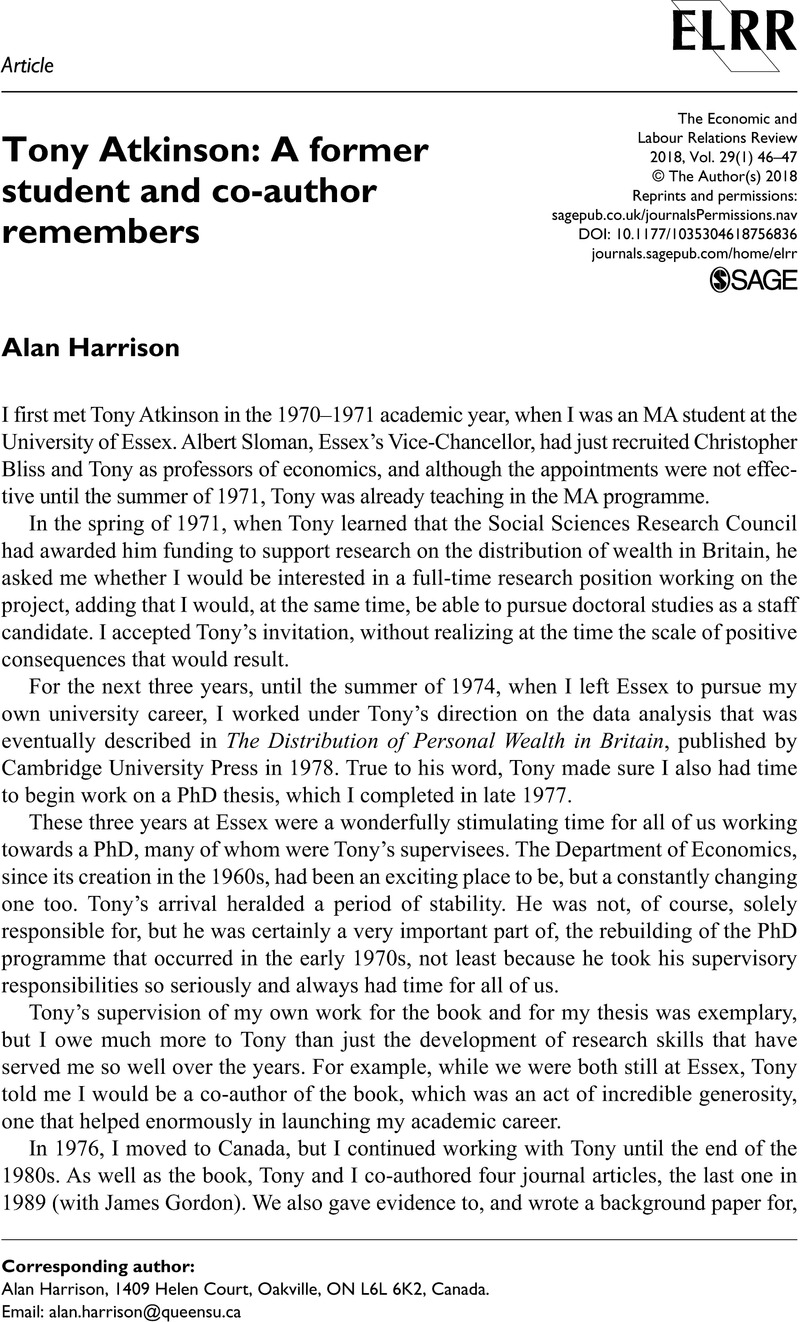No CrossRef data available.
Article contents
Tony Atkinson: A former student and co-author remembers
Published online by Cambridge University Press: 01 January 2023
Abstract
An abstract is not available for this content so a preview has been provided. Please use the Get access link above for information on how to access this content.

- Type
- Articles
- Information
- The Economic and Labour Relations Review , Volume 29 , Issue 1: Symposium on inequality in honour of AB Atkinson , March 2018 , pp. 46 - 47
- Copyright
- Copyright © The Author(s) 2018
References
Atkinson, AB (2015) Inequality – What Can Be Done? Cambridge, MA: Harvard University Press.CrossRefGoogle Scholar
Atkinson, AB, Harrison, AJ (1978) Wealth and Stark T Personal Incomes. New York; Oxford: Published for the Royal Statistical Society and the Social Science Research Council by Pergamon Press.Google Scholar
Atkinson, AB, Harrison, AJ (1978) The Distribution of Personal Wealth in Britain. Cambridge, NY: Cambridge University Press.Google Scholar


